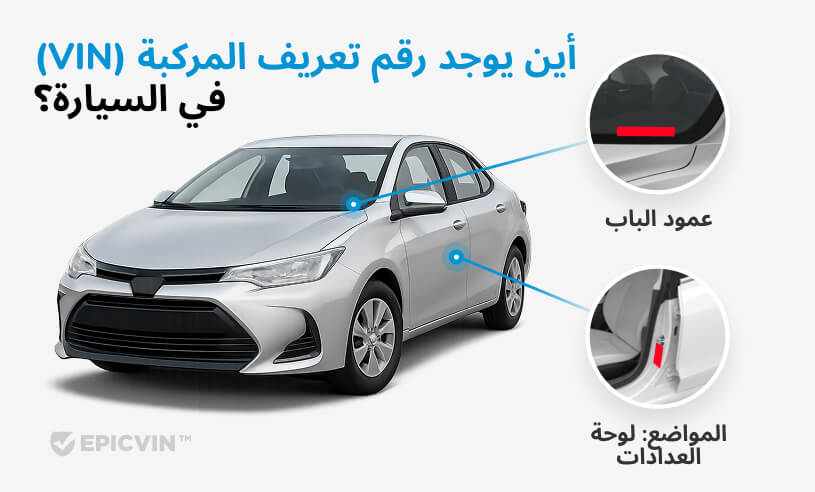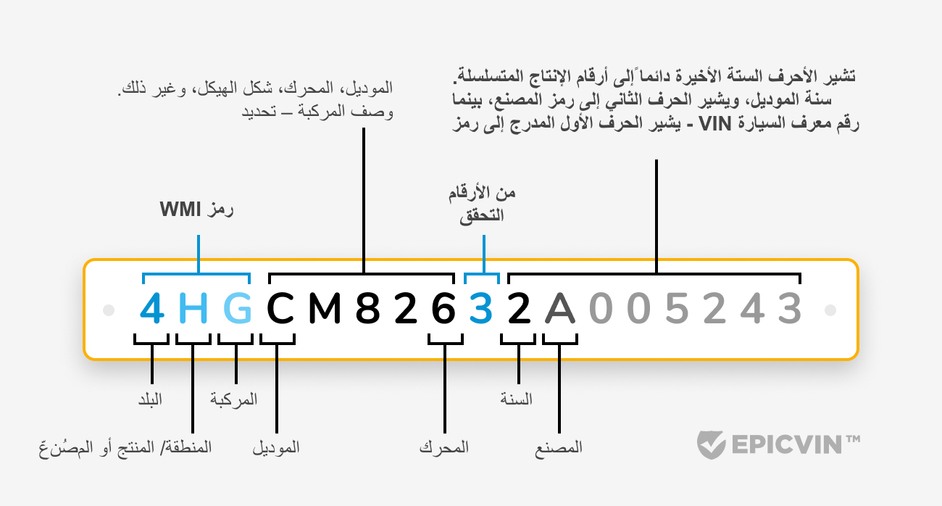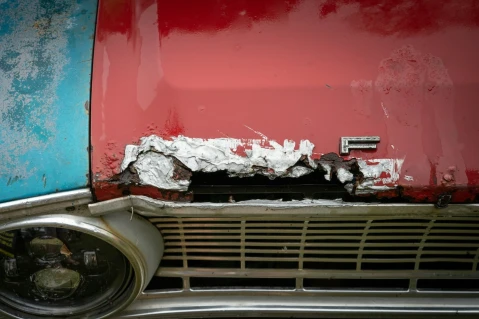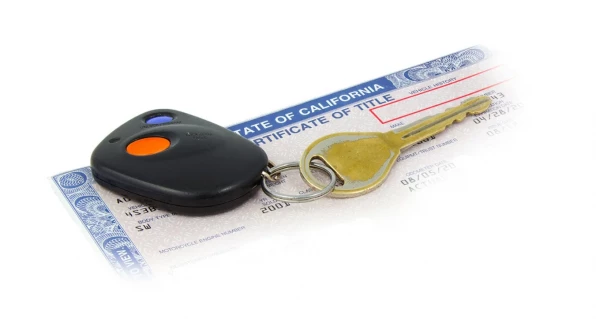
كيفية فك تشفير رقم VIN مثل المحترفين
بدءاً من فهم تفاصيل رقم VIN وصولاً إلى الكشف عن تاريخ السيارة، توفر لك هذه الم...

فك تشفير رقم الهيكل المجاني لسيارات International! 🚗 اطلع على المواصفات وورقة البناء والاستدعاءات والتاريخ الأساسي - بدون تسجيل. 🛡️✅ تحتاج لمعرفة الحوادث والمسافة المقطوعة والسند؟ قم بالترقية بنقرة واحدة.
"هل تبحث عن VIN؟
سوف تجده هنا:

منذ عام ١٩٨١، تتبع كل مركبة مُصنَّعة معايير معهد ISO برقم هوية فريد مكون من ١٧ رمزاً. يساعد فك التشفير الخاص بنا في تحديد المواصفات وحالة الاستدعاءات والتاريخ فوراً مع معلومات مفصلة.
Decoding your International's vehicle identification number takes just four simple steps:

تعرض شاحنتك الدولية أو مركبتك رقم الهوية في عدة مواقع معيارية:
| المخاطر الرئيسية | التأثير على المشترين | خطوات التخفيف |
|---|---|---|
| مخاطر السرقة | ~٤٢٬٠٠٠ سرقة لمركبات International في الولايات المتحدة عام ٢٠٢٤ | أجر فحص VIN للسرقة قبل الشراء |
| استدعاءات السلامة غير المُصلحة | ~١٨٪ من مركبات International المستدعاة تبقى غير مُصلحة | تحقق من حالة الاستدعاء عبر VIN |
| الاستهلاك مع الوقت | متوسط خسارة ٥ سنوات ~٤٧٪ من قيمة إعادة البيع لمركبات International المميزة | قارن بيانات إعادة البيع التاريخية |
| احتيال عداد المسافات | ١٫٩٪ من مبيعات International المستعملة تظهر تلاعباً | قارن العداد مع بيانات DMV |
| تاريخ غمر أو إنقاذ مخفي | أكثر من ١٢٬٠٠٠ مركبة International مُعلَّمة بالفيضان/الإنقاذ في مزادات ٢٠٢٣ | استخدم أرشيف NMVTIS وصور المزادات من EpicVIN |
قلل المخاطر: افحص أرقام VIN في قواعد البيانات الرسمية. قارن سجلات المسافة. احصل على تقارير تاريخ المركبة الكاملة قبل الشراء.
| المشكلة | النماذج المتأثرة، الأعراض، متوسط تكلفة الإصلاح |
|---|---|
| فشل ناقل الحركة | سيدان وSUV ٢٠١٢-٢٠١٦، تبديل صعب حوالي ٩٠ ألف ميل، ٤٬٢٠٠-٦٬٠٠٠ دولار |
| تمدد سلسلة التوقيت | محركات تربو ٢٠٠٨-٢٠١٤، خشخشة بدء التشغيل البارد في ٧٠-١٠٠ ألف ميل، ٢٬٥٠٠-٣٬٥٠٠ دولار |
| مشاكل كهربائية/iDrive | وحدات المعلومات والترفيه ٢٠١٥-٢٠١٩، تجمد الشاشة أو عدم وجود صوت، ١٬٢٠٠-١٬٨٠٠ دولار |

كل رمز في التسلسل الفريد لمركبتك يحكي قصة محددة مع معلومات مهمة.
هناك بعض التفاصيل الأخرى التي يجب على مالكي ومشتري المركبات الدولية معرفتها:
إليك مثال على كيفية تفسير فك تشفير رقم الهوية الدولي الخاص بنا لتسلسل عينة (3HSCUAPR0AN272771):
| الرموز | العينة | ما تكشفه |
|---|---|---|
| ١ | ٣ | الولايات المتحدة كبلد المنشأ |
| ٢ | H | شركة International Harvester كشركة مصنعة للسيارات |
| ٣ | S | نوع مركبة شاحنة تجارية |
| ٤-٨ | CUAPR | نوع المحرك وتكوين الهيكل ومواصفات النموذج |
| ٩ | ٠ | رقم التحقق للتصديق |
| ١٠ | A | سنة نموذج ٢٠١٠ |
| ١١ | N | رمز موقع مصنع التجميع |
| ١٢-١٧ | ٢٧٢٧٧١ | رقم تسلسل المركبة الفردي |
عام 2007
طراز International
موديل L9427
نوع الوقود Diesel
محرك 15.2L Caterpillar C-15 ACERT
صنع في CANADA
يكشف مُحلل رقم الهوية الدولي (VIN) عن المواصفات الشاملة والتفاصيل المهمة لأي شاحنة أو مركبة International، مع معلومات محددة:
EpicVIN يؤرشف صور المزادات برقم الهوية، مما يخلق تاريخاً بصرياً دائماً لكل مركبة International.— Alex Black، المدير التنفيذي للتسويق، EpicVIN
افحص لوحة القيادة، إطار باب السائق، حجرة المحرك، أو وثائق الملكية لرقم الهيكل.
تحتوي المواضع ٤-٨ على مواصفات المحرك التي يترجمها نظام فك التشفير لدينا تلقائياً.
يتضمن قسم وصف المركبة رموز ناقل الحركة التي تقوم قاعدة بياناتنا بالرجوع إليها مع مواصفات الشركة المصنعة.
نعم، الأرقام الثلاثة الأولى ورموز الهيكل تحدد التطبيقات والتكوينات المحددة.
تحتوي مواضع رقم الهوية على معلومات مجموعة نقل الحركة، بما في ذلك نسب المحاور لمعظم نماذج الشاحنات.
أدخل رقم الهوية الخاص بك في نظام البحث لدينا لاكتشاف أي استدعاءات مفتوحة فوراً.
فحص رقم الهوية لدينا يقارن إدخالك مع بيانات DMV للتعريف الصحيح.
أخطاء إدخال البيانات أو تبديل الهيكل يمكن أن تسبب تناقضات تتطلب التحقق من خلال موقعنا والاتصال بالأطراف المهتمة للتوضيح.
نعم، الأحرف الثلاثة الأولى ضمن المواضع ٤-٨ تحدد أبعاد قاعدة العجلات للمركبات التجارية.
فك التشفير لدينا يحدد مستويات شهادة EPA ومعدات الانبعاثات من تسلسلات رموز الشركة المصنعة.
اكتشف نصائح الخبراء والنصائح والأخبار حول شراء المركبات المستعملة وصيانتها.

بدءاً من فهم تفاصيل رقم VIN وصولاً إلى الكشف عن تاريخ السيارة، توفر لك هذه الم...

هنا سنقدم لك دليلًا حول عمليات نقل تأمين السيارة

اقرأ هذه المقالة لتكتشف المزيد حول تسجيل السيارة.